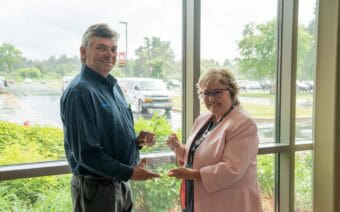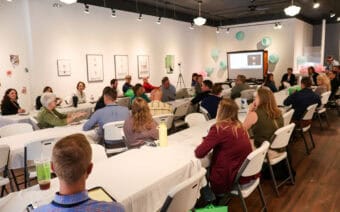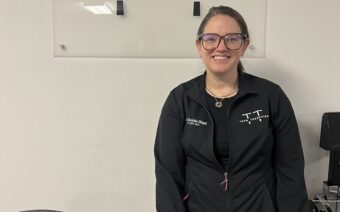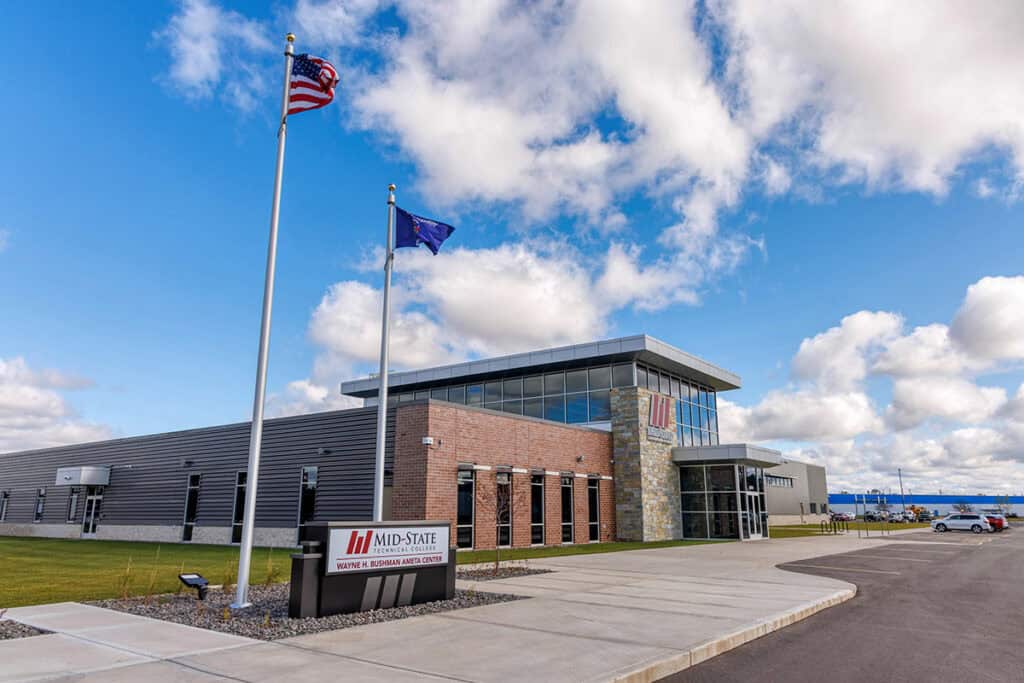
March 3, 2025
STEVENS POINT – The future of industry has arrived in Central Wisconsin, in the form of the Wayne H. Bushman Advanced Manufacturing, Engineering Technology, and Apprenticeship (AMETA™) Center (5000 Coye Drive).
The center is Mid-State Technical College’s sixth location and a cutting-edge training destination with state-of-the-art equipment and industry-experienced faculty – everything necessary to cultivate Wisconsin’s next-generation workforce.
Ryan Kawski, dean of Mid-State’s School of Applied Technology, said the 48,000-square-foot facility offers new and expanded advanced manufacturing and engineering degree programs, as well as apprenticeship training.
He said it also provides new and expanded workforce training and industry certifications.
With its first student through the doors in October and a total of 227 students enrolled in an AMETA Center program during the fall 2024 semester, Kawski said the center is already meeting the rising workforce demand for employees skilled in such technologies as precision machining, robotic machine tending, lights-out manufacturing, automated manufacturing and process control automation.
As a hub for innovation, connection and economic growth, Kawski said the AMETA Center is already poised to propel the future of industrial careers locally and throughout the Badger State.
Years in the making, Kawski said the center is a unique collaboration and partnership between Mid-State and businesses, individuals, local, state, federal agencies and governmental bodies – all of which made this center a reality.
Meeting workforce demands
When Shelly Mondeik joined Mid-State in June 2017 as its sixth president, Kawski said she hosted some community listening sessions and the school itself surveyed the community to find out how citizens felt the college was doing overall and what additional needs the community felt existed.
Kawski said one of the overwhelming things Mid-State leadership heard in those listening sessions and the survey was it needed to expand its offerings.
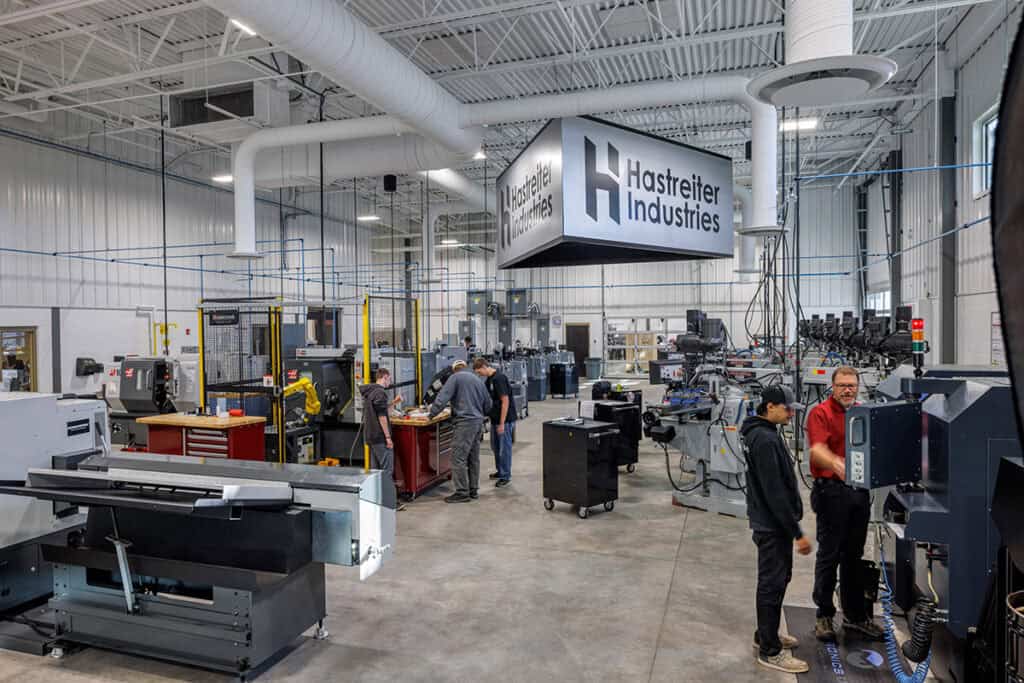
“In particular, people expressed a need for manufacturing-based programming; advanced manufacturing programming; engineering technology programming; and apprenticeship programming in the eastern part of our district,” he said, adding that the college serves eight counties in Central Wisconsin, primarily Portage, Wood and Adams.
Kawski said Mondeik created a team to look into those concerns.
Kawski said Mid-State identified specific academic programs that needed to either move elsewhere on campus or relocate to the eastern region of the district.
He said there was also some programming the technical college needed to create to meet the needs of the area’s employers and/or existing programming that needed expanding.
A needs assessment, Kawski said, pointed to one solution – a new, state-of-the-art facility for trade and industrial training.
So, in 2018, Kawski said Mid-State set out to help alleviate its district-wide skilled worker shortage – contacting various entities to get their thoughts on where such a facility could be built and how to best approach it.
Through Stevens Point Mayor Mike Wiza, Kawski said Mondeik was connected with Wayne H. Bushman, founder of Bushman Electric – who owned tens of thousands of square feet of leasable building space.
A lot of the space he owned, Kawski said, he leased for manufacturing purposes in the Stevens Point area.
Kawski said Mondeik and Bushman had an immediate rapport, which was the beginning of a mutually beneficial working relationship.
As it turned out, Kawski said Bushman was an alumus of Mid-State, having graduated from its construction and electrician apprenticeship program.
After hearing Mid-State’s ideas for new programming and a trade and industrial training center, Kawski said Bushman offered a few of the facilities he owned that were vacant, but none quite hit the mark.
In fact, Kawski said the one building was much too large for what the college intended to do.
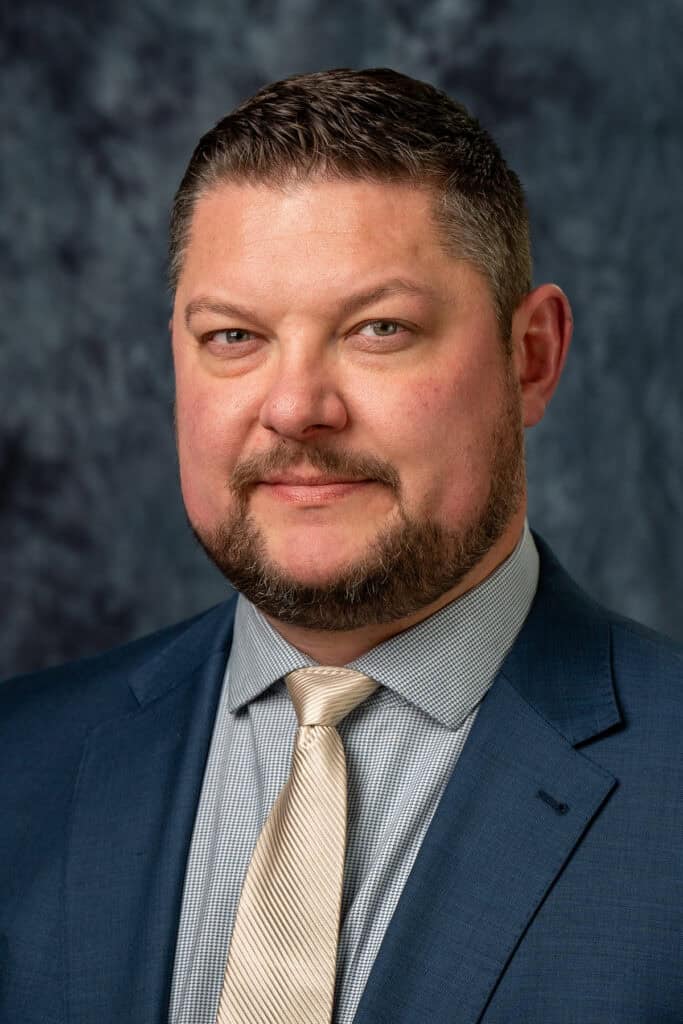
“But, Wayne believed in the vision of what the college had for this project,” Kawski said. “So he then asked ‘What if I gifted you land instead?’ He owned about a 36-acre parcel in the Stevens Point Industrial Park and was willing to gift about 6.5 acres of undeveloped property to the college.”
Once Mid-State started designing the space, Kawski said leadership realized they needed a little more space, so Bushman graciously increased his total land donation to 8.71 acres.
Next, a capital campaign
Though there are various ways to approach a capital campaign, Kawski said the college determined the best approach was to start its own grassroots capital campaign.
“We were so fortunate to have Wayne Bushman agree to take on the challenge of a capital campaign as our overall campaign chair,” he said.
Kawski said Mid-State recruited Joe Kinsella, founder of Pointe Precision, Inc., to join the campaign, as he had previous capital campaign experience.
Kawski said the school previously worked closely with Kinsella in developing the school’s machining program.
Mid-State, Kawski said, also connected with Scott Groholski, owner of Point of Beginning – a multi-faceted civil engineering, land surveying, landscape architecture and materials testing firm based in Stevens Point.
“He’s a civil engineering graduate and alum of the college,” Kawski said. “Between Bushman, Kinsella and Groholski they helped steer the capital campaign. We leaned on their relationships and contacts to start devising and developing campaign strategy.”
Kawski said it then evolved into a team from the college going out and making the “asks” of businesses.
“When we initially took this on, we believed this was going to be a $9 million to $9.5 million brick-an-mortar construction project,” he said. “We knew there were additional equipment dollars that would have to be raised. So we set out on this capital campaign journey to raise $9.5 million, knowing that the college can only, by statute, contribute $1.5 million of our own funds toward a capital project like this for net new square footage. We had to raise $7.5 million to $8 million to really make this thing happen and get a building up.”
In the fall of 2019, Kawski said Mid-State received its first donation of $100,000 from Stevens Point-based Gamber-Johnson.
However, he said leadership realized it was going to take a lot of $100,000 checks to make the dream a reality.
Then the pandemic hit
Though the COVID-19 pandemic stopped many projects across the country in their tracks, Kawski said “that did not stop us.”
“In fact, it only helped us accelerate our campaign and really redevelop our campaign strategy,” he said. “We knew we had to leave no stone unturned in this project in order to raise those funds. So, we battled through COVID by meeting virtually with various businesses.”
As campaign volunteers continued to meet with the businesses and raise funds, Kawski said Mid-State leadership was also working with a design firm to design and create the facility.
“So COVID extended out our design time and also allowed us more time to raise funds, to hone in on what our needs were for the facility and to identify what the specific areas and the different classroom sizes and lab sizes needed to be,” he said.
Unfortunately, Kawski said the inflation that came as a result of COVID pushed the project up to about $13 million.
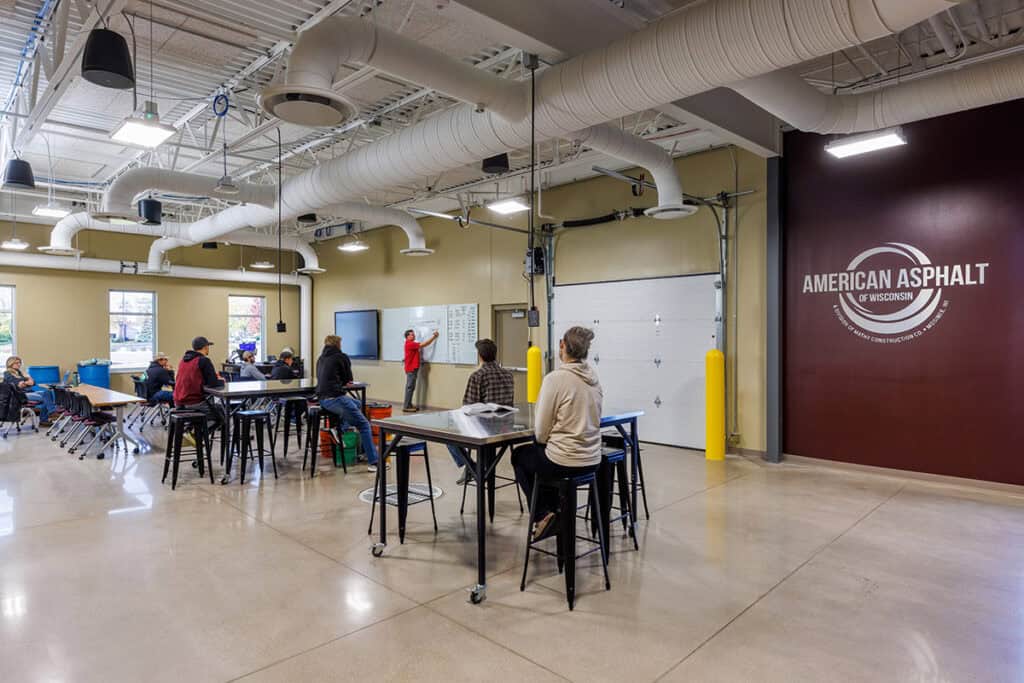
However, in the end, Kawski said the campaign successfully raised more than $23 million for the project.
Some of the ARPA (American Rescue Plan Act) dollars from the federal government that trickled down to the state, he said, were able to be used for educational purposes.
“We were able to, through various grant funding sources, restructure our capital campaign to strategically pinpoint some of the grants,” he said.
In all, Kawski said Mid-State was able to pledge a donation of another $1 million over a two-year span for new academic equipment.
The college also received:
- An approximately $9 million Workforce Innovation Grant through the Wisconsin Economic Development Corporation
- $2 million from the federal government through the Economic Development Agency (EDA) to be used specifically for equipment
- $1.3 million from the counties within the Mid-State district to support both construction of the facility and equipment within the facility
The rest of the money raised, Kawski said, was mostly due to private funding sources, including local businesses.
“We secured more than 300 partners within this capital campaign,” he said. “To date, we have 132 business partners that have supported us, 187 individual people from within the community that supported this project and eight different federal, state and local government agencies and municipalities,” he said. “When we say no stone was left unturned, we kicked every rock. But that’s what you have to do to make something like this happen.”
Though the center is a Mid-State project, Kawski said the various agencies, institutions and individuals that financially supported it bought into the vision for the project.
“It becomes really easy to fundraise when everyone shares the vision of what you’re trying to do,” he said. “It quickly turned from being a Mid-State project into being a community, regional and statewide project – that’s evident from the various funding sources that have provided financial support. This is a project that will touch all of the partners in various ways.”
With more than enough money to pay for the new center, Kawski said Mid-State broke ground in spring 2023, and officially cut the ribbon and opened the doors on July 22, 2024.
Kawski said Mid-State also obtained grant funding to develop new programs and an additional EDA grant to extend programming to its Adams campus.
“And in creating the campaign the way we did, we’ve created a scalable campaign where we can use this for other projects,” he said.
Economic impact
Kawski said it’s too early to have actual numbers on the economic impact the center has or will have on the region, but the estimated economic impact for the City of Stevens Point in meals, lodging and gas for students staying, moving or commuting to attend the AMETA Center is $1.8 million annually by 2026.
That number, he said, is expected to increase over time.
“That’s another reason why those local governmental agencies and municipalities supported this – they know there’s infusion into the local economy,” he said. “We are meeting and exceeding our goals for the first year in terms of enrollment and community engagement.”
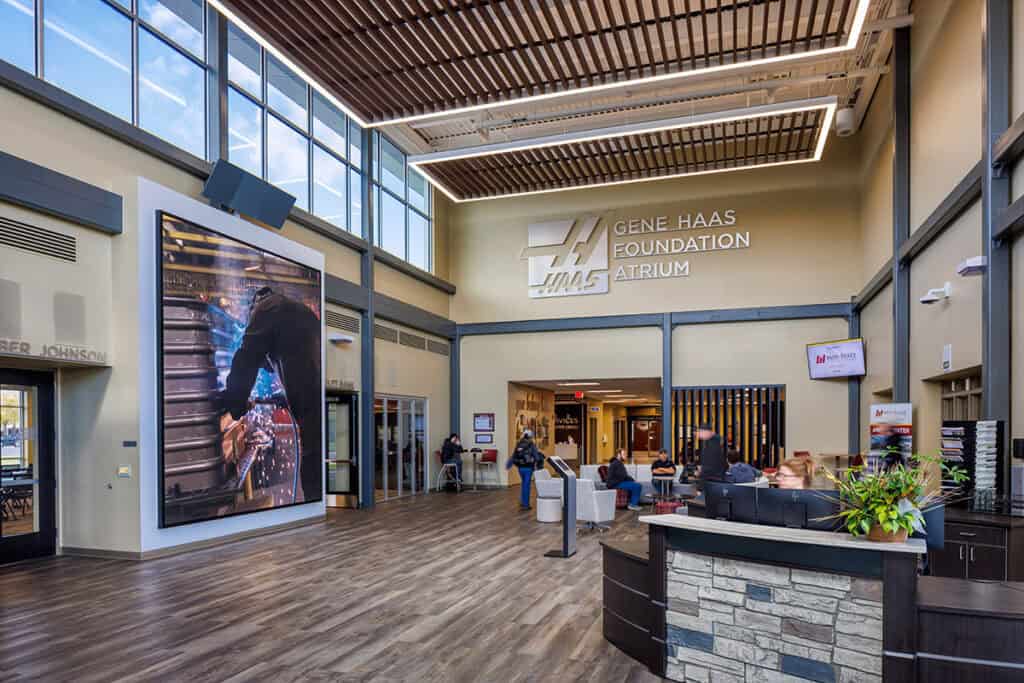
Besides the 227 students enrolled in an AMETA Center program for the fall of 2024, Kawski said Mid-State has 235 students enrolled for spring 2025 – that equates to 263 unique students served in the AMETA Center, 64 FTE.
Kawski said Mid-State has also attracted new faculty with relevant industry experience to work at the AMETA Center.
Additionally, he said the college has not only maintained the strong partnerships it formed during the capital campaign, it has continued to develop new partnerships and grow interest and support.
“As part of our successful Workforce Innovation Grant, we are able to offer students access to an inter-campus shuttle service and provide vouchers to our parent students to help pay for child care at a licensed agency,” he said. “Awareness around the AMETA Center has led to new opportunities and exposure; partnerships for non-traditional occupations, services and programs to veterans, re-entry programs for justice involved; and outreach to English language learners.”
Kawski said it’s important to note that in Mid-State’s district, manufacturing is the top-growing industry for job growth and the third-largest industry overall – providing $1.39 billion to the manufacturing GRP (gross regional product).
Mid-State’s largest counties – Portage, Wood and Adams – he said, support 11,270 manufacturing jobs at more than 200 companies, with a median salary of $66,512.
Furthermore, Kawski said each graduating cohort will receive $1.5 million annually in increased salary through their credentials received at the Center, increasing the already significant manufacturing-related payroll in Portage County.
“We’re so well connected to our employer base that a significant portion of our students are already employed at local businesses in the field they’re studying before they graduate,” he said. “From a training standpoint, we have invested in the advancement of their industries. We have invested through hiring the highest level of faculty in our programs and also through the specific kinds of equipment we have put in our labs. We’ve created a product that mimics what’s happening in industry with great intent to advance those businesses so that they can stay strong and keep our economy strong.”
Learn more about Mid-State Technical College and the AMETA Center and all they have to offer at mstc.edu.
 Jeopardy! champ pays it forward
Jeopardy! champ pays it forward Keeping nostalgia alive in Northeast Wisconsin
Keeping nostalgia alive in Northeast Wisconsin




